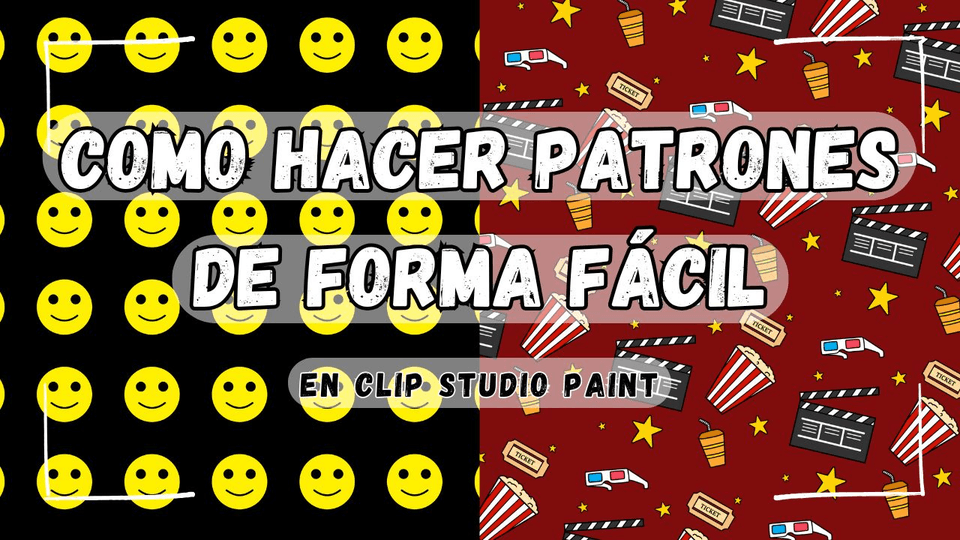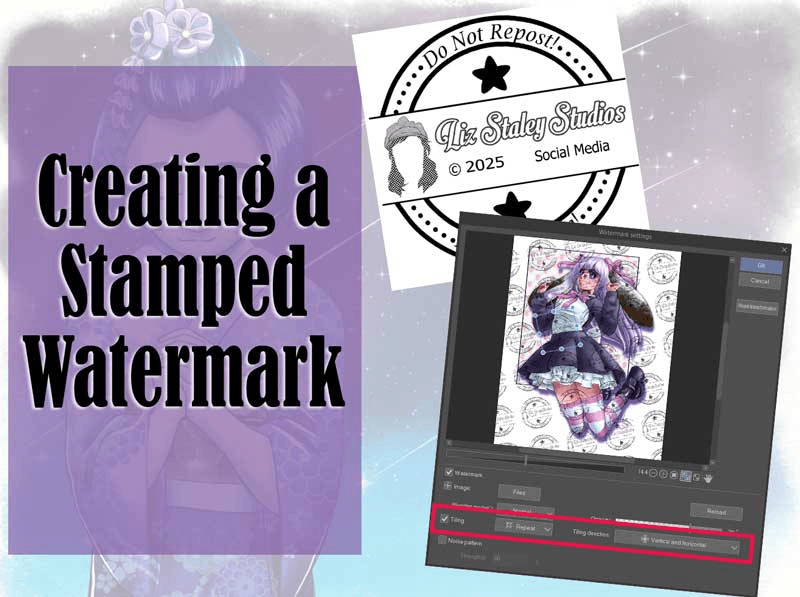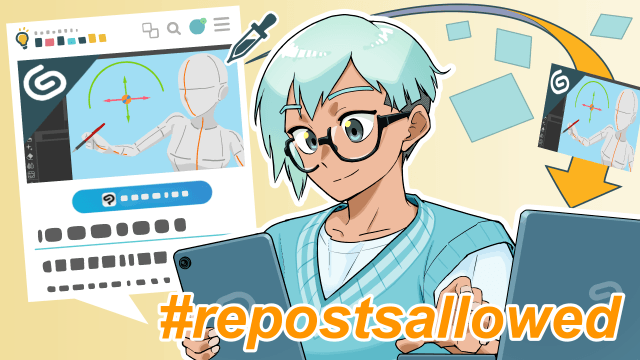How to Draw Crazy Easy Pop Art
Hello, this is Metosoi!
Today I'll show you how to make a super easy and simple remake!
STEP 1: Prepare the line drawing
First, prepare the line art!
This time I made the lines thicker to create a more pop feel.
★ How to easily correct lines
[Window] > [Tools] > [Correct Lines (Windows shortcut is "Y") > [Correct Lines Width] > [Tool Properties > "Thicken at specified width"]
With this selected, you can trace the line art to easily thicken the line!
Similarly, you can also thin the line by selecting "Thin at specified width".
STEP 2: Paint in four monochrome colors
Next, let's paint it using four monochrome colors!
The colors we will use are as follows.
You can save the image above and use it, or in Clip Studio, go to [Edit] > [Get Screen Color (Alt+c on Windows)] and use the eyedropper to pick up a color on your screen.
If you download the materials below, they come with a color palette. Please feel free to use them!
**************************************************************
**************************************************************
Here is what I painted
[Current layer configuration]
Make sure the white background is transparent.
When you click the eye icon on the paper layer to hide it, if the background appears as a block pattern, it's OK!
★ How to fill neatly
If there are gaps in the line drawing, filling may not work well.
In that case
[Window] > [Tools] > [Fill (Windows shortcut is "G") > [Refer to other layers] > [Tool properties > "Close gaps"]
Use the close gap feature to fill easily!
The closer the blue box is to the right, the wider the gaps will be closed.
STEP 3: Applying the gradient map
Create a folder
Once you've finished filling, it's time to use a gradient map!
To apply it, insert the line art to white layers into a folder.
You can create it by clicking [Layer] > [New Layer Folder], or by clicking on the red-framed area in the image below.
The folder has been created.
Insert the line art through white folders into the folder you created.
Check the boxes to the right of the eye mark for each layer...
Drag and drop onto the folder.
It will work if you release the cursor when the folder has a red border around it.
The insertion was successful!
If you confirm that there are no dividing lines near the eye mark on any of the layers in the folder, the insertion was successful.
Create a gradient map in a folder
This time I will use a gradient map that I created. It is available for free on CLIP STUDIO ASSETS, so please check it out!
**************************************************************
**************************************************************
Add a Gradient Map
Create a gradient map by going to [Layer] > [New Tonal Correction Layer] > [Gradient Map].
Once created, a pop-up like the one below will appear.
Click the wrench mark, select [Add Gradient Set], and then select [Pop Art Gradient Set] to add it.
Once you have added the gradient set, select the top layer of the folder to create a gradient map.
Try applying different patterns! You might find some unexpected combinations.
STEP 4: Finishing
Have fun adding various effects!
You can make an even more lively illustration by creating another folder created using the method above and applying a gradient map to it!
[Example 1]
Use gradient map number 1 for the character and number 7 for the background
[Example 2]
Use gradient map number 2 for the character, number 7 for the background, and number 1 for the text.
In this way, you can easily change and increase the colors by changing the gradient map applied to each folder, and have fun!
Bonus: How to edit gradient maps
You can edit this gradient map to give you more freedom in using colors.
The gradient map works so that dark colors are replaced by the color on the left, and light colors are replaced by the color on the right.
In my gradient, I assign colors to brightness levels of 25 each on the scale from 0 to 100.
Therefore, you could say that the four monochrome colors that were applied before have been replaced with four colors.
Therefore, you can change the color to any color you want by changing the color that corresponds to the brightness.
Let's try changing the color that corresponds to the brightest area.
Click on the red frame in the band displayed at the top of the Gradient Map popup.
You can freely change the color by clicking on the area near the specified color where the selected color is displayed.
This time I chose this color.
Clicking [OK] will replace the color.
lastly
The materials used are attached.
Thank you for the wonderful material!
























Comment